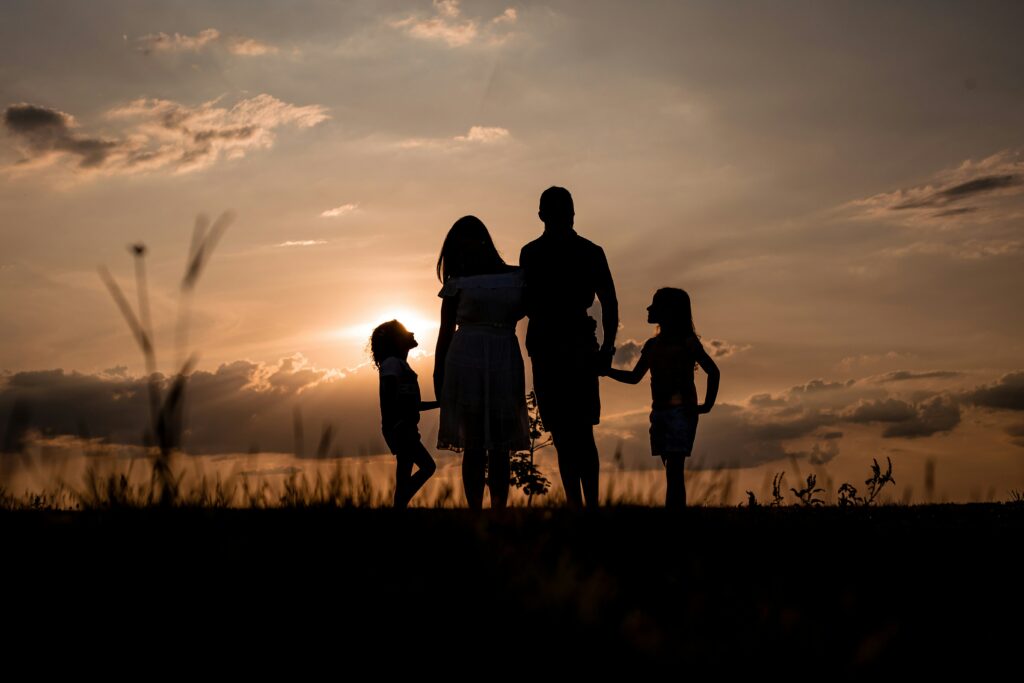
From Prevention to Restoration: Supporting Families at Every Stage of the Foster Care Journey
7 Pasos para Convertirse en Padre de Crianza
We call ourselves The Riverside Project because we see Houston’s foster care system as part of a fast-moving river. If you’re new to this metaphor, check out this short video.
When we talk about The River, you’ll often hear us use the words upstream and downstream. This is because it’s vital to show up for children and families along every stretch of the foster care journey.
Some children are at risk of falling into The River due to family instability or crisis.
Others are already struggling to stay afloat.
In this post, we’ll unpack what upstream and downstream support look like and how we can use both to help children and families find footing on dry ground.
What Do We Mean By Upstream and Downstream?
Foster care is not an isolated issue—it intersects with many other challenging circumstances that are affecting families across our city.
But for every challenge that leads a child or family into The River, there also exists a way that we can step in and offer support. So whether you’re focused on preventing a crisis or walking alongside those already impacted, there’s a role for everyone.
And you don’t have to do it alone; there are already many people working together in our community to make a difference.
Some are working upstream to prevent families from being pulled into The River. Upstream efforts refer to prevention—steps we can take to support families in crisis and promote stability before a family engages with the foster care system.
Others are working downstream. Downstream efforts refer to restoration—support directed toward youth and young adults who have already been impacted by the foster care system.
No single organization or individual is capable of helping everywhere all at once. But when we all work together AS ONE, we multiply our impact and create a stronger web of support for Houston’s vulnerable children and families.
By learning about the opportunities for outreach both upstream and downstream, you can:
- Understand the root causes and ripple effects of Houston’s foster care system
- Determine where your skills, resources, or time can make the biggest impact
- Support our neighbors in need—knowing that fostering is just one piece of a much larger picture
We always say that everyone can do something, but we cannot and should not all do the same thing. As you read this article, please consider which needs you or your organization might be uniquely positioned to meet for families here in Houston.
Why Upstream Support (Prevention) Matters
Upstream work addresses the root causes of family separation. When we help strengthen families before they reach a breaking point, we reduce the chances that children will be removed from their homes and family.
When we take time to travel upstream, we find many contributing factors that are pulling families into The River, including:
- Poverty
- Lack Of Education
- Crisis Pregnancy
- Homelessness
- Trafficking
- Incarceration
Poverty is a leading driver of child welfare involvement. That means one of the most effective ways we can prevent family separation is by connecting biological families with the resources they need to remain stable and stay together.
Our team strives to meet many of these tangible needs through The Response Network—which has served hundreds of biological families to date. Through this initiative, we mobilize churches, foster closets, nonprofits, and other partners across Houston to respond to needs submitted to us by CPS caseworkers.
Here’s one example of how we collaborate with local partners to provide practical upstream support:
Sometimes, when families are involved in a child welfare investigation, financial hardship makes it difficult for them to comply with home requirements. And unfortunately, due to extensive regulations, families aren’t always able to take advantage of resource centers such as foster closets.
This is where local businesses can make a major impact. When businesses step in to donate specific items—like furniture, licensing items, cleaning supplies—we can help families show up strong, meet necessary standards, and stay together.
How Downstream Support (Restoration) Changes Lives
Even with strong prevention efforts, some families will still be pulled into The River. That’s why restoration is just as important.
For families in the thick of the system—biological, foster, or adoptive—practical resources and meaningful relationships can be the lifeline they need to stay afloat.
Downstream support can look like:
Tangible items and services – Businesses and nonprofits that donate supplies help meet essential needs. We help connect these resources with the families who need them.
Consistent relational support – Local churches are uniquely positioned to establish long-term, supportive relationships with vulnerable families. Physical resources are helpful, but belonging and community are just as essential.
Trauma-informed training – Through the Harris County TBRI® Collaborative, we equip caregivers and professionals with the tools they need to respond to children’s trauma in a way that fosters trust and healing.
Babysitting certification – By Texas law, foster parents can only use babysitters who are specially trained and certified to care for children in foster care. By becoming certified, you can provide much-needed support and relief to foster families in your community.
These strategies are essential for wrapping support around children and families currently navigating the foster care system.
But restoration doesn’t end when a child turns 18. Young adults aging out of the system often face immense challenges—ones that are difficult to overcome all on their own.
It’s not enough to pull someone out of The River only to leave them stranded on the shore, exhausted and at risk of slipping back in. We need to help them find their footing so they can move from surviving to thriving.
Here are two high-impact ways we can support young adults transitioning out of care:
1) Education – Education can be life-changing for a young adult who is aging out of foster care. These individuals may be the first in their families to pursue higher education. In our interview with Nicole Davis on The Riverside Project Podcast, we dove into how mentoring, life skills training, education, and career preparation can help young adults unlock opportunity and independence.
2) Employment – Many youth aging out of care struggle to find stable jobs. They may lack access to job training, mentorship, or reliable transportation. When businesses offer internships, training, or job placement, they open doors that can change the entire trajectory of a young adult’s life. To hear one powerful example of a program that’s addressing this need, check out our episode with Brian Meza.
The goal of restoration? To help children, families, and youth aging out of care find stable footing on dry ground—and to remind them they don’t have to walk their journey alone.
Creating a City-Wide Support System
Upstream, downstream, or somewhere in between, every role along The River matters. At the heart of all of this work is one simple but powerful mission: building a compassionate community where families can experience safety, dignity, and belonging.
When Gaelin Elmore joined us on the podcast, he delivered an impactful message about the extraordinary power of belonging. Gaelin shared that as a child who was navigating deep instability, struggles in his home life would spur him to act out in school. But what stayed with him in these moments wasn’t the times his outbursts were punished—it was the moments when teachers saw past the walls he was trying to build up and responded with compassion.
His story goes to show that one of the most powerful messages we can send to children and families is this:
“You’re not alone. We see you. We’re in it with you.”
There are so many possibilities for how we can send this message loud and clear:
What if more schools were trauma-informed and equipped to support students carrying invisible burdens?
What if more neighbors reached out to vulnerable families in their community before a crisis happens?
What if more businesses opened doors for youth aging out of foster care to step into stable, meaningful employment?
On their own, these acts of kindness may seem small. But together, they can form the robust network of support our city needs.
Find Your Place Along The River
To truly make Houston a place where children heal and families thrive, we have to look at the big picture.
Everything in The River is connected. Upstream factors can increase the likelihood of a child entering foster care. Downstream gaps can leave young adults vulnerable as they age out.
But when we work together across every point—prevention, intervention, and restoration, and everything in between—we create a system where hundreds of organizations and thousands of people are strategically positioned all along The River, fully equipped to help children and families find “dry ground.” That’s the kind of system that can transform generations.
Would you like to be part of this work? We’d love to help you find your place along The River. Reach out to us at hello@riversideproject.org or fill out this form to get started.


